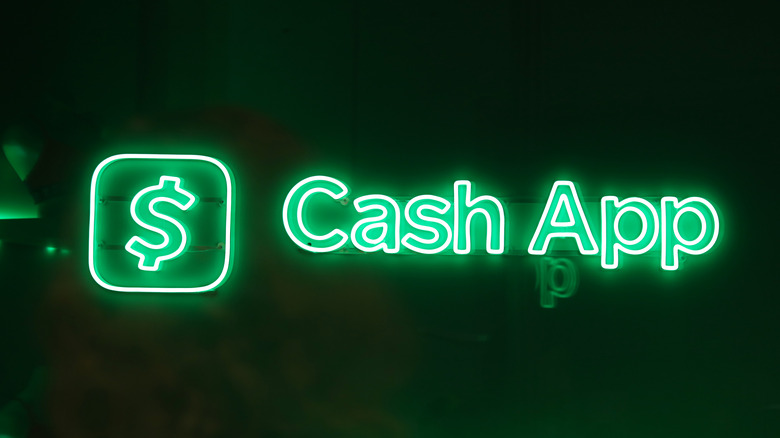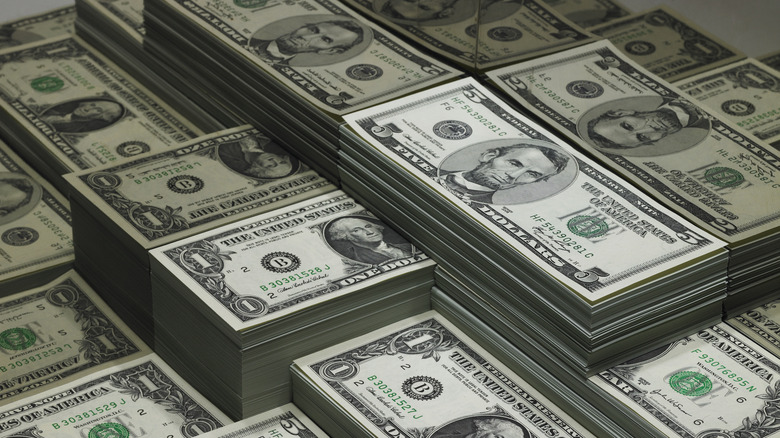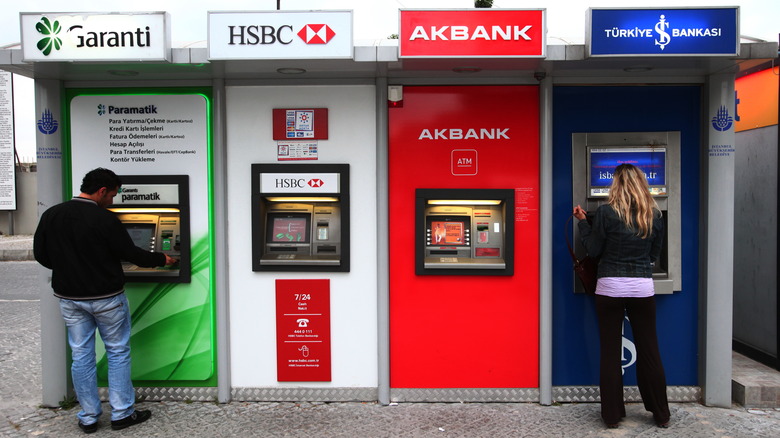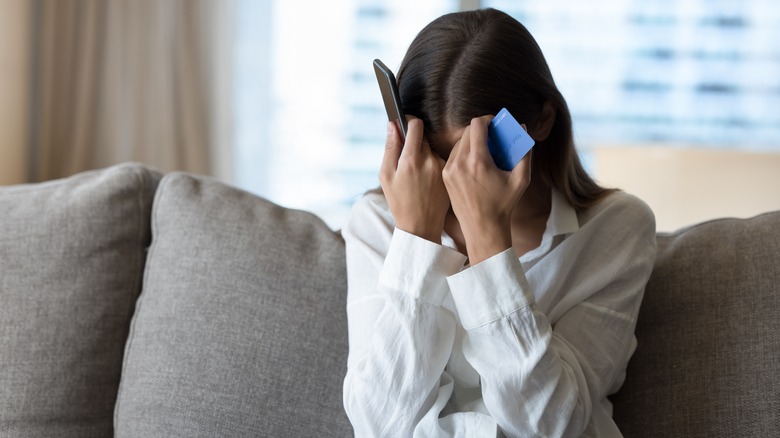Is Cash App Safe? Here Are Some Precautions It Takes To Keep Your Account Protected
Technologically speaking, Cash App is a very secure payment platform, complete with encrypted transactions and the ability to set a PIN code specific to the app to lock it down. Regardless of your internet connection, even if it's a public Wi-Fi network, your information is encrypted as it's sent to Cash App's servers. Cash App is also PCI Data Security Standard (PCI-DSS) Level 1 compliant, meaning that it's in line with the security standards that the major credit card companies use. At least when it comes to how the app is built, you don't have anything to worry about when using the Cash App.
At the end of the day, though, Cash App is a payment platform, meaning that it will be a target for internet scammers, first and foremost, because it's effectively as good as actual cash. There are no fraud protection or buyer protection features like those with credit cards or non-friends and family transactions on PayPal or Venmo. On top of that, since Cash App doesn't require a bank account to use it, some people might use it as a de facto bank account, but, at least by default, it doesn't come with any of the protections expected of an actual bank account, like FDIC insurance.
With all that in mind, let's take a detailed look at what you need to know to stay safe on Cash App.
Understand that you need to treat Cash App transactions like cash
Here's some advice that should hopefully go a long way: Take the "cash" in Cash App as literally as you possibly can. That's because you should consider a Cash App payment as close to cash as any digital transaction could be, being that once it's gone, it's gone. The app has you covered in basic security features, but if someone scams you into getting you to send them money via Cash App, the money you sent is lost.
When it comes to the major players in the mobile payment space, only PayPal and its sister app, Venmo, offer any kind of real fraud protection. That comes in the form of the buyer protection that both offer when marking a transaction as being for "Goods and Services" on PayPal or flipping on the "Turn on for purchases" switch on Venmo. This change in classification results in transaction fees for the seller, which makes for a convenient excuse to switch to a friend and family payment or another payment app, but again, those behave like cash.
As long as you understand this and act accordingly, there's nothing wrong with using Cash App outside of a friends and family scenario. There are situations, like in-person Craigslist transactions, where, if not for the likes of Cash App and Zelle, you'd probably just be using cash if it wasn't for payment apps. Just understand that once you tape "send," the money isn't yours anymore.
You generally shouldn't use Cash App like a bank
One aspect of Cash App that's particularly attractive to some people is that it doesn't require that you attach it to a bank account to use it. Like PayPal and Venmo, Cash App lets you accrue a balance from payments you've received that you can use as a funding source for sending payments yourself without ever having to withdraw any of it to a bank account. Of the major mobile payment apps, only Zelle strays from this model, as it works with your banks to move the money directly from bank account to bank account without the need for withdrawals. Also, like PayPal and Venmo, Cash App is explicitly not a bank, so the money in your account balance doesn't have any of the protections your bank account balance has.
The FDIC insures proper bank accounts to protect customers from losing their deposited funds in the event of bank failure. If Cash App were to fail catastrophically and you had money sitting in your account balance, then you're unlikely to be able to get that money back. There is an exception, though: If you have the Cash Card, a Visa-branded Cash App debit card that lets you use your balance to withdraw from ATMs or make purchases wherever Visa is accepted, your funds are FDIC-insured up to $250,000. With the Cash Card being free, if you like or need to keep a balance in your Cash App account, signing up for it is a no-brainer.
Be aware of common scams
Scams run rampant these days, and Cash App, as a payment provider without fraud protection, makes for a great target for scammers. As a result, the best way to stay safe on the platform may be to have an awareness of common scammer tactics.
Cash App's help pages single out several common scams that users should be aware of. Among other things, those tips include:
- Take a moment to use common sense and not buy into a scam offering a large sum of money in exchange for sending a smaller sum of money.
- Disregarding emails purportedly from Cash App that aren't from and/or linking to domains other than square.com, squareup.com, cash.app, or cash.me. If they claim to be Cash App in emails not coming from/linking to those domains, then the sender is almost surely trying to dupe you into giving up your information in a phishing scam.
- Understanding what information actual Cash App support staff will ask for and how it will never include the likes of login code, social security number, or app PIN, as well as never requiring "test transactions" or downloading remote access apps.
Other scams to watch for include unexpected deposits from other users as a pretext to a scam where the fraudster will ask for money from you, contests requiring "entry fees," investment opportunities, and catfishing scams where someone will try to cultivate an online "romantic relationship" as a means to asking for money.



